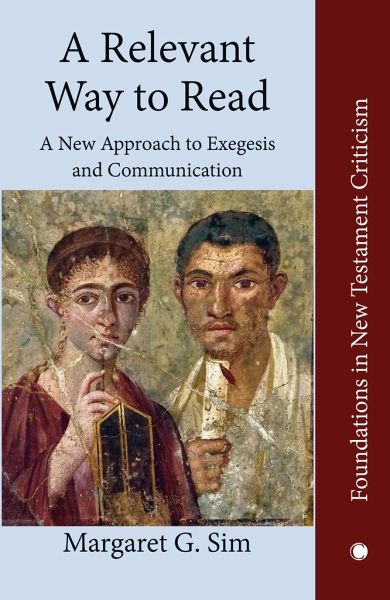
A Relevant Way to Read
Versandkostenfrei!
Versandfertig in 1-2 Wochen
82,50 €
inkl. MwSt.
Weitere Ausgaben:

PAYBACK Punkte
0 °P sammeln!
In 'A Relevant Way to Read', Margaret G. Sim draws on her in-depth knowledge of New Testament Greek to forge a new exegesis of the Gospels and Paul's letters. Locating her studies in the linguistic concept of relevance theory, which contends that all our utterances are laden with crucial yet invisible context, Sim embarks on a journey through some of the New Testament's most troubling verses. Here she recovers some of that lost information with a meticulous analysis that should enlighten both the experienced biblical scholar and the novice. Whether discussing Paul's masterful use of irony to s...
In 'A Relevant Way to Read', Margaret G. Sim draws on her in-depth knowledge of New Testament Greek to forge a new exegesis of the Gospels and Paul's letters. Locating her studies in the linguistic concept of relevance theory, which contends that all our utterances are laden with crucial yet invisible context, Sim embarks on a journey through some of the New Testament's most troubling verses. Here she recovers some of that lost information with a meticulous analysis that should enlighten both the experienced biblical scholar and the novice. Whether discussing Paul's masterful use of irony to shame the Corinthians, or introducing the ground-breaking ideas behind relevance theory into a whole new field of study, Sim demonstrates her vast learning and experience while putting her complex subject into plain words for the developing student.













